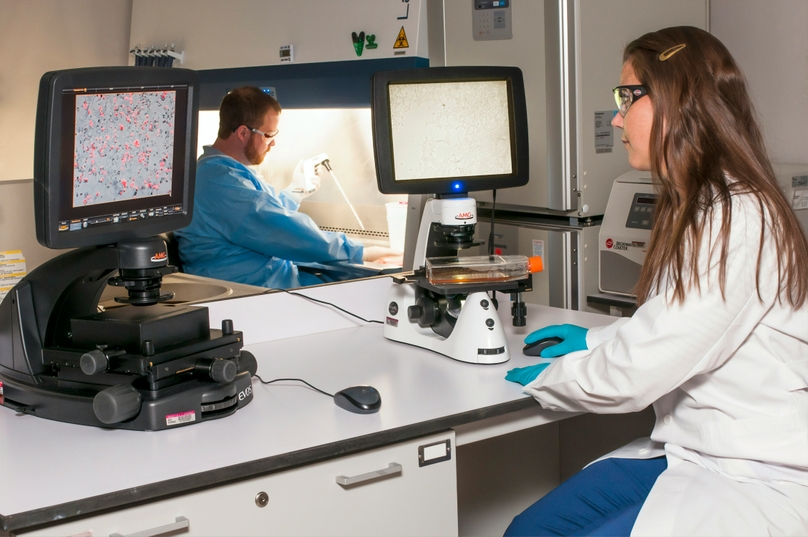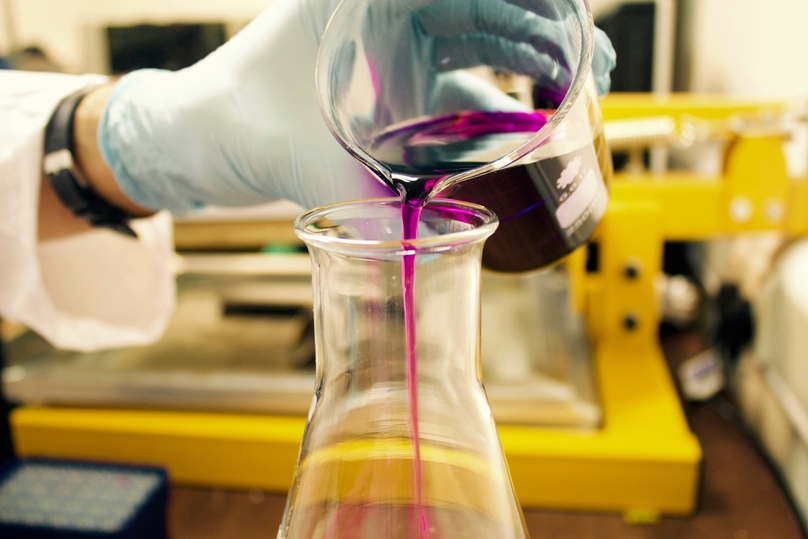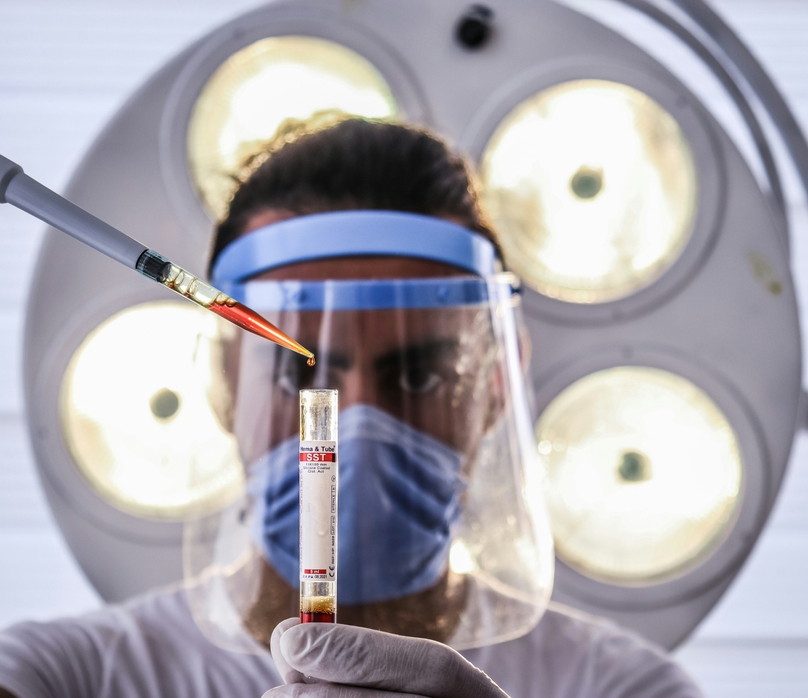Why Laboratory Management is Important
Running a clinical lab is a big responsibility and fulfilling your role as a lab manager means understanding what laboratory management involves and being able to optimize the way your research facility is run. Lab management involves the following responsibilities:
- Maintaining a safe work environment
- Improving lab productivity fundamentals
- Managing the lab’s budget
- Organizing and maintaining supplies
- Calibrating and maintaining instruments
- Implementing the lab’s quality control
- Coordinating training for current staff and new hires
- Ensuring compliance within the lab
- Recommending procedures to improve lab procedures
Laboratory management is important because it ensures that all clinicians in the lab are on the same page, following the same protocols and that the lab is run safely. This enables all tests to be performed efficiently and safeguards that results are accurate.
In this article, we will discuss common problems that can arise in lab management and provide management tips to keep your lab running in tip-top condition.
Trying to streamline the workflow and processes of your lab? Try lab automation with a LIMS from Genemod to take the next step in your lab’s efficiency.
Common Issues in Lab Management
When a lab is managed poorly, things can quickly go awry. Lack of leadership and poor management skills can result in serious issues such as a shortage of supplies and too-rapid growth. Other possible problems include:
- Disorganized laboratory operations
- Poor communication between team members
- Errors in sample tracking
- Data entry errors
- Issues with data access and security
- Improper inventory management
- Testing delays
Not only can these issues cost your lab money, but they can also cause errors that not only damage your reputation but also affect diagnostics and patient healthcare.
Lab Management Solutions
There are several protocols that you can implement within your laboratory that will quickly improve your lab’s productivity, efficiency, and communications between you and your team. These will also give you confidence that you are a successful lab manager.
Define Workflows
A laboratory workflow is the procedural steps involved in achieving results and the team members and resources involved in these processes. One of the easiest and most efficient ways to define workflows for your team is to use project management software. This type of solution has many benefits for improving workflow, such as:
- Giving you the ability to structure processes
- Getting tasks done in the minimum amount of time
- Sequencing the order of tasks with optimum efficiency
- Improving and increasing productivity
- Resolving problems before they have a knock-on effect
Every project team has its own workflow and project management tools allow you to create lab workflows that can adapt to your project management methodology. Your software solution can then send the needed documents to team members. By automating your process, you can also monitor your team’s progress. When you pick the right software solution, it will also help you manage projects and tasks.
Focus on Skill Improvement
When you’re managing a lab, you are constantly balancing research tests and experiments with budgeting, inventory management, and grant applications. It can be easy to lose sight of the importance of developing skills within your team.
Focusing on skill improvement can boost efficiency and help to keep your team motivated. Here are some ways you can improve your team’s technical skills:
- Insight and assistance: Watch team members while they are working on a project and look for where you can show them how to strengthen their operations. Demonstrate how they can improve their practical skills, whether it's using reagents or performing assays. It’s also a good idea to help them improve their communication and presentation skills.
- Virtual training: Virtual lab training is a great way to increase skills without the need for costly travel to training facilities. You can implement training right there in your own lab, choose which skills you want to develop, and monitor your team’s progress.
- Keep your team motivated: An important part of developing skills within your team and ensuring that they are eager to learn is to keep team members motivated. You can do this by setting clear goals, communicating well, asking for opinions, celebrating successes, and giving constructive feedback.
Set Initiatives
Research initiatives are rigorous investigations designed to explore ideas and concepts that will benefit your team across multiple areas or projects. They are important because they can take your research to the next level.
You should be able to implement solid initiatives that add value to your research programs and provide accurate test results. You can choose to set weekly, or even quarterly initiatives to keep lab members on track and focused on the correct tasks.
Whether your field of research is in microbiology, agriculture, or pharmacology, setting initiatives is crucial. The best way to make sure all your team members receive the same initiatives at the right time is to implement a project management software solution. This will ensure accuracy, efficiency, and timeliness in all lab work.
Budget Accordingly
Your budget needs to be just as adaptable as your laboratory. This means if your lab is experiencing exponential growth, you must be able to redefine the budget and meet new expectations in terms of hiring and supply management. Equally, if the growth of your lab is slowing, then it’s time to re-allocate your budget to ensure that all your high-priority needs are met.
The three key areas of budget management are:
- Personnel costs: This is a major part of your budget and should be used wisely. When hiring, whether your prospective team member is a recent graduate or a postdoc, consider not only qualifications and experience but also what team members will add to your lab as a whole.
- Instruments and equipment: You can save money on your equipment budget by taking care of your current equipment. When you’re buying new equipment consider purchasing a service contract.
- Laboratory supplies: The daily costs of running your lab are important to consider. If you track your daily expenses over time, it will give you a good picture of your budget. It will also enable you to choose providers more easily.
Communicate Clearly
Clear communication is a critical skill for a lab manager and is needed to define workflows, set initiatives, budget accordingly, and grow as a team. It’s important that team members feel that you are providing them will relevant information and that you are always available to listen. You should always speak directly to your team and be honest with them.
Empower your employees by allowing them to participate in decision-making and listen carefully to their input. Choose your words carefully and be precise, especially when you are giving instructions. This will save time and prevent errors.
If you’re having trouble keeping track of your lab’s reagents and libraries for DNA sequence editing, check out Genemod’s electronic lab notebook software for a user-friendly tool to transform your workplace.
Level Up Your Lab Management with Genemod
All of the lab management solutions discussed above are equally important. But it can often feel like an overwhelming responsibility to maintain them all at the same time. This is why Genemod is here to help you.
We have designed a series of customizable software to help you maintain a high standard of lab management. Our LIMS and lab automation solutions can help you with:
- Sample management
- Digitization of protocols
- Project management
- Workflow optimization
- Information management
- Laboratory testing
- Research and development
Whether you’re researching, trouble-shooting, or problem-solving, let Genemod help you level up your lab management. Book a demo today to find out more.
















